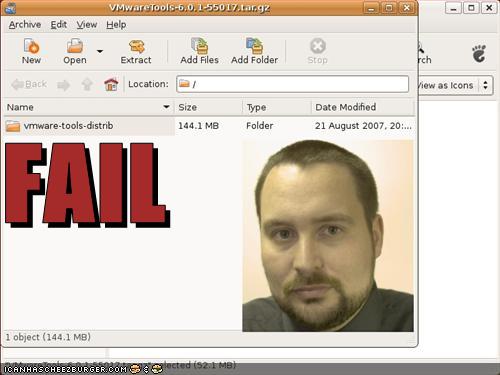How Linux app install leaves one PC expert befuddled

At least that was my initial reaction when I read his “Linux's dirty little secret” column about his struggles with installing applications onto a Linux distro. It was either the Linux Geek rage originating from the knowing that he didn't Read the Fine Manual (RTFM) or the sheer jealousy of not getting 300+ Talkbacks whenever I post something on ZDNet like the fine Mr. Kingsley-Hughes. But I digress.
You can't really blame Adrian, though. Adrian is a relatively new Linux user – he comes from the world of Windows, where you double click on a SETUP.EXE icon and minutes later, you've got an application installed on your system. With Linux, that's not the case – different package standards between distributions and lack of standardization in software manifest tools has created a situation where on the most of the major Linux distros, you haveRed Hat Package Manager (RPM) files and on others, namely Ubuntu and Debian, you have Debian Archives (.DEB).
Click on the "Read the rest of this entry" link below for more.
To add further complexity into the situation, the RPMs and DEBs used on one distro are not necessarily compatible with the RPMs or DEBs on another. And some software doesn't come in a neat little package format – they come as good 'ol compressed tarballs (tar.gz or tar.bz2). Case in point, if you want to use the very latest builds of anything from a Open Source project such as Mozilla or OpenOffice.org, and don't want to wait for your distribution to spoon feed it to you over their network repositories, you need to un-Gzip or un-Bzip2 and tar extract the software to a directory and make manual symbolic links to the executables and launch icons on the desktop. Fun, right?
Granted, Adrian's specific problem could have been solved by consulting Ubuntu Forums or going to VMWare's fine Communities web site, where the VMWare Tools installation procedure is documented in detail. VMWare Tools is unique because it was primarily designed to use with Enterprise Linux distributions, such as RHEL and SLES – and because it is so tightly integrated with the Linux Kernel, it requires that specific driver modules be built for each distribution's kernel, at each specific version level. For RHEL and SLES, you just need to install a single RPM file and run the configuration script, as everything is pre-built -- these distros don't change that quickly, so VMWare is safe with only needing to build modules for them periodically. But in the case of poor Adrian and Ubuntu 8.04, where the distro is refreshed every six months, you have to un-gzip-tar the software, install the linux-source and linux-headers, and install the build-essential package which contains all the necessary compiler and developer tool dependencies to build the kernel modules. THEN he can run the installer script. Got it? Good.
Fortunately, the problem will eventually just “Go Away” -- the VMWare Tools package was released into Open Source, and eventually, every distribution will just have it built-in, like the newly released OpenSUSE 11 which is already VMWare enabled. I suspect that within short notice, open-vm-tools as well as the Microsoft Hyper-V hypercall adapter modifications to Xen and the Sun xVM VirtualBox tools will all be available in Ubuntu and any distribution that wants to use them. My sources tell me even ultra-geeky Gentoo, the source based distro popular with embedded systems and boot CDs, has it available.
This is all fine and dandy for VMWare Tools, but it's hardly a happy ending for the balance of Linux users. Yes, the Linux desktop experience is improving. Yes, plenty of software is available on the download repositories for a lot of distributions, especially Ubuntu. But until this stuff is totally foolproof, even seasoned PC experts like Adrian are going to be thrown through a loop.
Do we need form a concerted effort to make Linux applications easier to install? Talk Back and Let Me Know.
